WINDEE

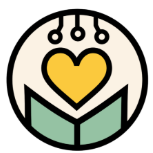
Project summary: The well-being of students and educators in digital education is crucial. Our policy experimentation project addresses the lack of understanding, strategies, and coordinated policy efforts in this area. We build evidence, create solutions, and conduct experiments to refine and implement systemic policy changes. The project begins with comprehensive evidence building through research, assessment, and policy mapping on digital well-being. We then develop Digital Well-being Framework, integrating:
- Person-specific factors including digital competences and health considerations.
- Context-specific factors involving educational environment, learning design and school culture.
- Device-specific factors pertaining to the types of digital devices and best practices for safe and balanced use.
The Digital Well-being Framework provides principles for responsible technology use and strategies for creating balanced digital learning environments. It includes practical recommendations for selecting technological solutions well-suited for learning design. We test the Digital Well-being Framework through experimentation in real-world educational settings. This iterative process refines our strategies, ensuring they are effective and relevant. Ultimately, we influence educational policies at regional, national, and European levels. By creating evidence-based policy recommendations and fostering systemic change, we strive to embed digital well-being into every classroom. A strong partnership of universities, schools, policymakers, and EdTech experts, enhances the project’s capacity to address the complex challenges of digital well-being in education.
| Project title: | Well-being in Digital Education Ecosystem (WINDEE) |
| Project No: | 101195779 WINDEE — ERASMUS-EDU-2024-POL-EXP |
| Project coordinator: | Vytautas Magnus University (VMU), (Lithuania) |
| Contact persons at VMU: | prof. dr. A. Volungeviciene, airina.volungeviciene@vdu.lt |
| Project run: | 36 months (March 2025 – February 2028) |
| Project budget: | 998 230.00 EUR |
| Project page: | https://windee.eu/ |
Partners:
- KIC – Knowledge Innovation Centre (Malta)
- TLU – Tallinn University (Estonia)
- UOC – Open University of Catalonia (Spain)
- EDEN – Digital Learning Europe (Estonia)
- EUN – PARTNERSHIP AISBL (Belgium)
- EDUCRAFTOR OY AB (Finland)
- NATIONAL AGENCY FOR EDUCATION (Lithuania)
Associated partners:
- LieDM – Lithuanian Association of Distance and e-Learning (Lithuania)
- LKNUC – Lithuanian Educational Centre for the Deaf and Hard of Hearing (Lithuania)
- Stifterverband – Stifterverband fur die Deutsche Wissenschaft (Germany)
General Objectives:
- Improve digital skills and competences among teachers and students to support effective learning and teaching.
- Develop and refine digital learning environments to ensure they support students’ physical, cognitive, emotional, and psychological well-being.
- Integrate digital competences into curriculum design to foster a cohesive and inclusive educational experience.
- Engage educators, policymakers, and communities to collaboratively promote digital well-being in education.
- Use research, data, and policy experimentation to inform policy development and implementation strategies that enhance digital education practices.
- Contribute to the strategic goals of the European Education Area, the European Higher Education Area, and the Digital Education Action Plan.
Work packages:
- PROJECT MANAGEMENT AND QUALITY ASSURANCE
- ASSESSMENT OF DIGITAL WELL-BEING IN EDUCATIONAL ECOSYSTEM
- INSIGHT ANALYSIS AND FRAMEWORK DEVELOPMENT
- EDUCATOR EMPOWERMENT
- POLICY EXPERIMENTATION AND IMPLEMENTATION
- DISSEMINATION, OUTREACH AND IMPACT
DISCLAIMER: “Funded by the European Union. Views and opinions expressed are however those of the author(s) only and do not necessarily reflect those of the European Union or the European Education and Culture Executive Agency (EACEA). Neither the European Union nor EACEA can be held responsible for them.”
Digital Well-being in the European Digital Education Ecosystem
DI-daktika
The project aims to identify when digital didactics with elements of AI, informed by LA, enhance teaching, learning, and assessment.
| Project title: | Questioning Digital Didactics in School Education with the Elements of Artificial Intelligence (DI-daktika) |
| Project No: | P-EDU-23-1 |
| Project coordinator: | Vytautas Magnus University |
| Contact person at VMU: | prof. dr. A. Volungevičienė, airina.volungeviciene@vdu.lt |
| Project run: | 2025 04 01 – 2028 04 03 |
| Project budget: | 496 386,66 Eur |
The project will be implemented through main activities:
- To identify the challenges of teaching, learning, and assessment using elements of AI, informed by LA, in classroom curriculum;
- To develop a taxonomy of AI digital competence sub-set of digital competencies applicable to teachers and methodological guidelines on their development;
- To design and assess pedagogical scenarios for using elements of AI, informed by LA, to enhance teaching, learning, and assessment
- To draw evidence-based recommendations for state institutions on how to substantiate solutions of using elements of AI, informed by LA, to improve the quality and sustainable advancement of classroom didactics and school education
AIR
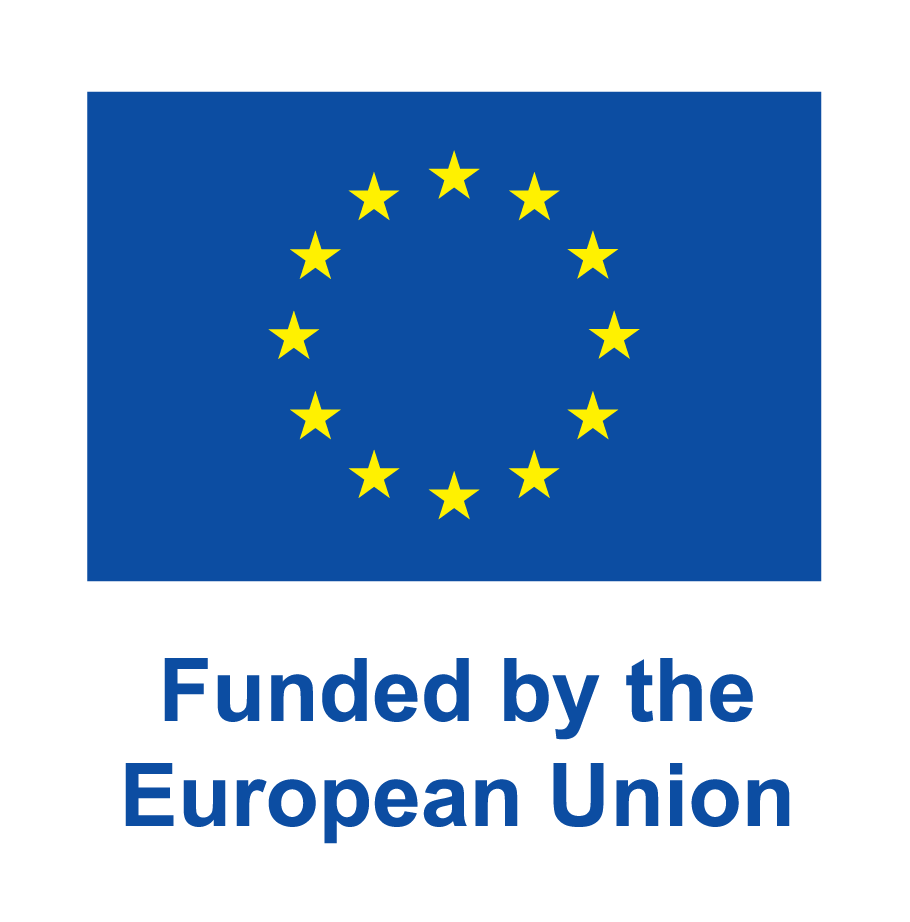 |
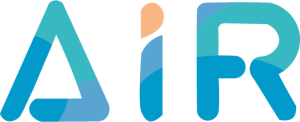 |
The project aims to design practical support strategies tailored to university lecturers and to develop special learning paths for students applying innovative pedagogical methods and open-source augmented and immersive reality solutions to improve the teaching and learning experience. The resources developed will enable the integration of augmented and immersive reality technologies into existing courses and academic projects.
| Project title: | Augmented and Immersive Reality in Higher Education (AIR) |
| Project No: | 2025-1-IT02-KA220-HED-000359340 |
| Project coordinator: | CONSIGLIO NAZIONALE DELLE RICERCHE – Istituto per le Tecnologie (CNR), Italy |
| Contact person at VMU: | Assoc. prof. dr. E. Daukšienė, estela.dauksiene@vdu.lt |
| Project run: | 2025 10 01 – 2028 03 31 |
| Project budget: | 400 000 Eur |
The project will be implemented through main activities:
- Collecting innovative learning formats and developing a teacher and learner competence framework for using augmented and immersive reality (AIR) solutions in educational activities;
- Development of blended courses and modules on AIR solutions;
- Organising transnational learning activities for HE teachers and students
- Collecting and sharing an open learning and development hub
CULT@INTEL

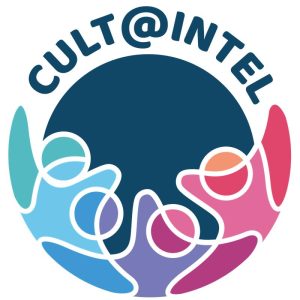
| Project Title: | Incentivise Excellence in Digitally-transformed Pedagogy: Applying Cultural Intelligence for Students’ Inclusiveness and Success (Cult@Intel) |
| Project No: | 2024- KA220-HED-FD3FE0E1 |
| Project Coordinator: | Social Innovation Fund, Lithuania |
| Contact Person at VMU: | Dr. Daiva Urmonienė (daiva.urmoniene@vdu.lt) |
| Project Duration: | 2024.12.01 – 2026.11.30 |
| Project Budget: | 250,000.00 EUR |
| Project Website: | (Under preparation) |
Project Partners:
- Vytautas Magnus University, Lithuania
- Social Innovation LTD, Cyprus
- University of Latvia, Latvia
- Instituto Politecnico Do Porto – OT, Portugal
Associated Partner: Lithuanian Distance and e-Learning (LieDM) Association, Lithuania
Project Objectives:
- Train teachers in digitally-transformed pedagogy based on cultural intelligence for the inclusion and success of students with cultural differences;
- Validate teachers’ cultural intelligence competence;
- Provide teachers with digital practices for applying cultural intelligence;
- Promote internationalization in higher education institutions by implementing a strategy to reward and incentivize excellence in teaching based on cultural intelligence;
- Support the facilitation of in-service training for teachers.
Project Outcomes:
- Development of an educational e-Lab, “Implementing innovative digitally-transformed pedagogy based on cultural intelligence”, with two learning pathways:
- 1) To train teachers to apply innovative digital pedagogy based on cultural intelligence.
2) To support administrative staff in implementing the strategy to reward and incentivize excellence in pedagogy based on cultural intelligence.
- The e-Lab will be piloted with 80 teachers, 8 facilitators, and 16 administrative staff.
MISS4Health
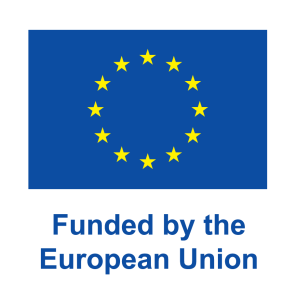

The project annotation. The main objective of the MISS4Health project is to improve the transversal competencies of healthcare professionals and medical students, focusing on the development of their soft skills, using a modular Massive Open Online Course (MOOC) leading to micro-credentials (that at the EU level that certify the developed competencies). MISS4Health includes four work packages covering curricular design, content creation, micro-credentials establishment and interactive resources implementation, as well as a double loop validation that assures the overall quality of the MOOC. Additionally, management, quality, dissemination, and sustainability plans will conduct the project and contribute to its widespread impact. And finally, several intangible results will be obtained, such as feedback and motivation of end-users and stakeholders.
| Project title: | Micro-credentials in Soft Skills for Healthcare Professionals and Students |
| Project No: | 2023-1-CZ01-KA220-HED-000159335 |
| Project coordinator: | University of Hradec Králové (Czech Republic ) |
| Contact persons at VMU: | Assoc.prof. Estela Daukšienė, estela.dauksiene@vdu.lt
prof. A. Volungeviciene, airina.volungeviciene@vdu.lt |
| Project run: | 30 months (November 2023 – April 2026) |
| Project budget: | 400.000 EUR |
| Project page: | https://miss4health.eu/ |
Partners:
- CCMIJU – Centro de Cirugía de Mínima Invasión Jesús Usón (Spain)
- CUNI – Charles University (Czech Republic)
- VMU – Vytautas Magnus University (Lithuania)
- TU – Turiba University (Latvia)
- UNIRI – University of Rijeka (Croatia)
- VIRAL Studios (Spain)
Project result:
MISS4Health will produce a high quality and validated MOOC based on micro-credentials. Besides, learning materials including guidelines and recommendations will be created. Additionally, management, quality, dissemination, and sustainability plans will conduct the project and contribute to its widespread impact. And finally, several intangible results will be obtained, such as feedback and motivation of end-users and stakeholders.
First face-to-face international meeting of the Miss4Health project in Kaunas
OER-CODEX

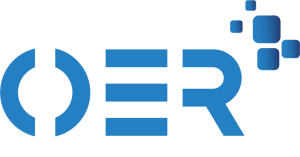
The aim of the project is to develop OER course modules, conveying digital teaching and learning methods of online collaborative learning in a blended learning context for educators in higher education (HE), aiming to increase the capacity and readiness of HE institutions to manage an effective shift towards digital education.
| Project title: | Open Educational Resources for Collaborative Online & Distance Education and eXchange
(OER-CODEX) |
| Project No: | 2021-1-DE01-KA220-HED-000023196 |
| Project coordinator: | Technische Universitat Dresden, Germany |
| Contact person at VMU: | Assoc. prof. dr. Aušra Rutkienė, ausra.rutkiene@vdu.lt |
| Project run: | 36 months (28/02/2022–27/02/2025) |
| Project budget: | 324 285 EUR |
| Project page: | https://oer-codex.fh-krems.ac.at/ |
Project partners:
- Evro-sredozemska univerza, Slovenia
- Vytautas Magnus university, Lithuania
- Technische Universitat Dresden, Germany
- IMC Fachhochschule Krems, Austria
Project results: The OER-CODEX project results can be distinguished in three types:
- A methodology to develop OER courses is developed with all partners, which will be openly available for all educators, who already have experience in digital learning and teaching methods and also want to develop OER courses to further strengthen the use of digital tools and therefore shift towards digital education. Furthermore, this methodology includes a special aspect that in the developed course modules also exemplary OER content is created with educators as a core output, which itself will be OER and therefore readily available for all interested educators to be used freely.
- The developed course modules: All course modules are structured within the areas of the EU DigCompEdu framework and therefore are directly fitted to the objectives identified by the EU. As these modules are also aimed to increase the competency levels of educators form A1 (Newcomer) to B1 (Integrator), the educators will have the defined competencies after successfully completing the respective course.
- The OER output of selected course modules: As the course modules are designed to generate OER output collaboratively with the participants in the direction of the taught learning content, the piloting of these courses will generate OER output, which can be published as an OER as well. Furthermore, each time one of the course modules is taught, it will generate a different OER output and therefore increase the available variety of OER content for educators looking to engage in digital education and therefore developing digital readiness, resilience and capacity independent from institutional support. Higher Education Priority: Stimulating innovative learning and teaching practice As this consortium is a well-balanced mix of higher education institutions from 4 different nations, it is capable of engaging in interconnected higher education systems and with the designated OER content of course modules and generated OER output in these courses, we are developing the digital skills and competences of HE educators. As this is a concrete effort to foster virtual and blended learning by giving the educators the expertise and tools for digital education, we stimulate innovative learning and teaching practices in HE. Experienced educators are also giving a methodology with which they themselves can develop OER course modules for digital education. This also leads to a new impulse for the spread of digital education. Furthermore, we give the educators concrete exemplary OER content, which can be used freely from the start of their efforts to implement digital education. This gives the educators a concrete idea on which the further development of their own blended courses can be based.
LeMOON

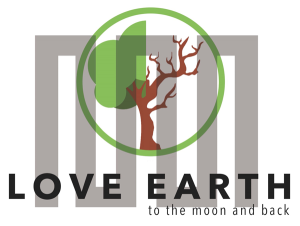
The project aims to provide individuals with a practical education and tools to be much more equipped against major global environmental problems specifically against climate change and public health.
| Project title: | LeMOON– Love Earth to the Moon and Back : Development of ECurriculum on Climate Change and Environmental Education for Secondary Education Students in Online Learning Platform |
| Project No: | 2021-1-CZ01-KA220-SCH-000034484 |
| Project coordinator: | Tauferova střední odborná škola veterinární Kroměříž, Czech Republic |
| Contact person at VMU: | Dr. Estela Daukšienė estela.dauksiene@vdu.lt |
| Project run: | 36 months (11/2021– 11/2024) |
| Project budget: | 352 263 EUR |
Project partners:
- Tauferova střední odborná škola veterinární Kroměříž, Czech Republic
- Manisa İl Afet ve Acil Durum Müdürlüğü, Turkey
- VYTAUTO DIDZIOJO UNIVERSITETAS, Lithuania
- MANISA CELAL BAYAR UNIVERSITY, Turkey
- ACD – Agency for Cultural Diplomacy (Agentur für Kulturdiplomatie), Austria
- NSTYTUT ROZWOJU SPORTU I EDUKACJI, Poland
- Móðurmál – samtök um tvítyngi, Iceland
- Lycée Louis Jouvet de Taverny, France
Project Results (also available in LeMOON project website):
- e-Curriculum Program: Le_MOON will design a future oriented climate change and environmental education e-curriculum to be implemented through online educational technologies which will better meet the needs of individuals. The achievements of the current programs will be tailored into our e-curriculum according to our target audience and changing environmental conditions.
- e-learning platform: It is a digital platform where the project works will be implemented and the outputs shared (information, trainings, deliverables and resources). Anyone interested will be able to easily access that digital environment and use it as an OER (open educational resource). This platform will both serve as a digital portfolio to share and keep project actions and results (ecurriculum program and e-modules…etc) and as an interactive communication tool for the project stakeholders and the wider community.
- e-modules: E-modules will be developed in accordance with the e-curriculum program.
TRANSFORM


The project aims to develop Learning Hub “Digital transformation” to support adult educators and adult education organisations in the path to digital transformation for high-quality inclusive online training corresponding to learners’ needs.
| Project title: | TRANSFORM – Digital transformation in adult education for inclusive online training |
| Project No: | 2021-1-LT01-KA220-ADU-000035360 |
| Project coordinator: | Social Innovation Fund, Lithuania |
| Contact person at VMU: | Prof. Margarita Teresevičienė margarita.tereseviciene@vdu.lt |
| Project run: | 3o months (01/01/2022– 30/06/2024) |
| Project webpage: | https://transform.lpf.lt/ |
Project partners:
- GROWTH COOP S.COO. AND., Spain
- MT: Motivation Technologies, Latvia
- ALLI: Athens Lifelong Learning Institute, Greece
- VMU: Vytautas Magnus University, Lithuania
Project activities:
- To support resilience and to build capacity of adult education organisations and their educational staff for implementing the digital transformation to digital transformation for high-quality inclusive online training.
- To develop adult educators’ digital competence for providing the high-quality inclusive online training.
- To assess the adult educators’ digital competence with the possibility to provide micro-credentials.
- To support adult educators-facilitators to provide online training on digital transformation for adult educators.
- To integrate the digital technology to subject-specific online training on gender equality.
- To promote inclusion of adult learners facing gender-discrimination barriers into the labour market and society.
Synergies among international projects addressing online teaching and learning challenges
DIGI-PROF


The project aims – is to support HE teachers and HE institutions to design and implement transparent assessment for online learning and recognition of learning outcomes by proposing methodology, guidelines, practical tools and training material to develop their digital competences.
| Project title: | Transparent Assessment for Online Learning by Digitally Competent Professors |
| Project No: | 2021-1-LT01-KA220-HED-000031154 |
| Project coordinator: | Vytautas Magnus University (Lithuania) |
| Contact person at VMU: | A. Volungeviciene airina.volungeviciene@vdu.lt |
| Project run: | 36 moths (January 2022 – December 2024) |
| Project budget: | 295 944 Eur |
Partners:
- Vytautas Magnus University, (Lithuania)
- EDEN Digital Learning Europe Mittetulundusühing, (Estonia)
- FUNDACIO PER A LA UNIVERSITAT OBERTA DE CATALUNYA, (Spain)
- UNIVERSIDADE DE AVEIRO, (Portugal)
- UNIWERSYTET SLASKI, (Poland)
- Duale Hochschule Baden-Württemberg (DHBW), (Germany)
Project result:
- Design transparent assessment strategies for online learning in HE. Training material for HE teachers.
- Monitor, support and engage students based on the evidence generated by digital technologies. Training material for HE teachers.
- Ensuring digital and micro credentialization of learning as a part of transparent assessment for recognition of learning outcomes. Training material for HE teachers.
- The guidelines for HE institutions to implement transparent assessment of learning outcomes for online and blended learning, leading to digital and micro-credentials.
- 10 courses for virtual and blended cooperation of consortium institutions.
Synergies among international projects addressing online teaching and learning challenges
Discussion and presentation of the Digiprof project on sustainable development at TGM
Lecture “The perspective of online study through the eyes of a digitally competent lecturer”
International conference at the Latvian College of Business Administration
Digitally competent teachers- ready for international inter-institutional online collaboration
Plenary presentation at the Osijek University International Conference
Digital Micro-Credentials in Higher Education
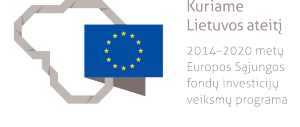
The aim of the project is to describe and create the process of issuing micro-credentials in higher education.
| Project title: | Digital Micro-Credentials in Higher Education |
| Project No: | 13.1.1-LMT-K-718-05-0003 |
| Project coordinator: | Vytautas Magnus University |
| Contact person at VMU: | E. Trepulė, elena.trepule@vdu.lt |
| Project duration: | 22 months (November 2021 – August 2023) |
| Project budget: |
299 988,22 EUR |
The project will be implemented through main activities:
1.To describe the process of integration of micro-credentials into study process through revealing their potential to foster social, economic and higher education innovations, as well as contribution to the sustainable post Covid-19 pandemic recovery;
Output – published scientific article: Tamoliune, G., Greenspon, R., Volungeviciene, A., Tereseviciene, M., Trepule, E., Dauksiene, E. (2023). Exploring the potential of micro-credentials: A systematic literature review. Frontiers in Education. https://doi.org/10.3389/feduc.2022.1006811
2. To describe requirements for the micro-credentials’ implementation process;
3. To adapt the open learning environment to the process of digital micro-credential implementation;
Output – virtual learning environment adapted for issuing micro-credentials https://smartmoodle.vdu.lt/
4. To pilot the process of issuing micro-credentials and to present its potential to foster social, economic and higher education innovations to interested parties, along with the contribution to the sustainable post Covid-19 pandemic recovery.
This project has received funding from European Regional Development Fund (project No 13.1.1-LMT-K-718-05-0003) under grant agreement with the Research Council of Lithuania (LMTLT). It is funded as European Union’s response to the COVID-19 pandemic.
Lecture “The perspective of online study through the eyes of a digitally competent lecturer”
International conference at the Latvian College of Business Administration
Plenary presentation at the Osijek University International Conference









